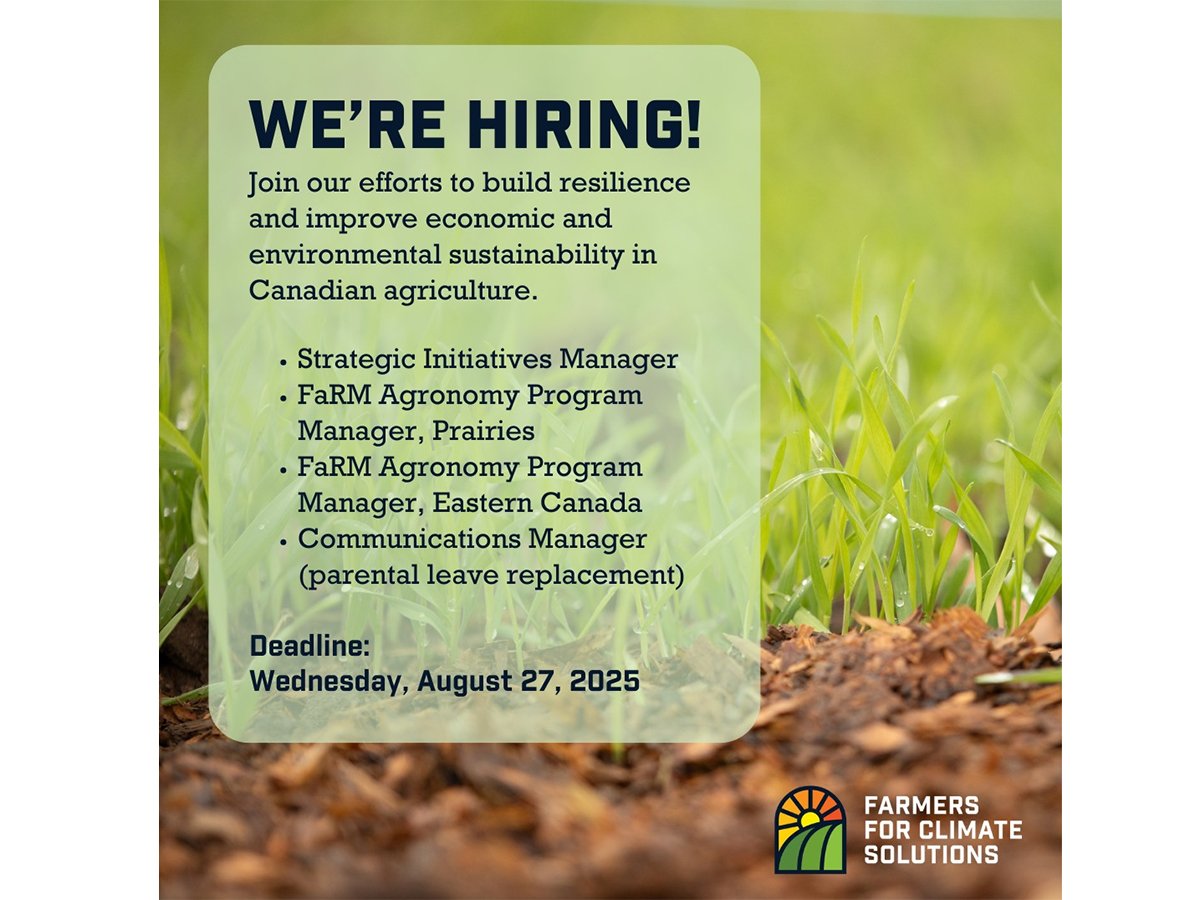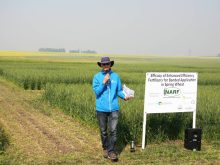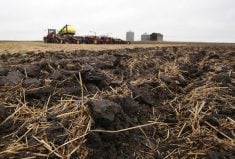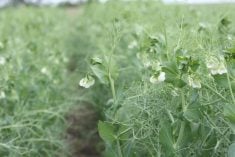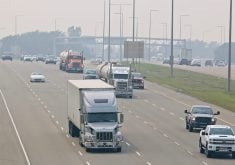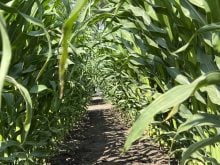WINNIPEG — It’s common for Canadian farm groups to publish reports that include five or 10 policy recommendations for the federal government.
Most of the time, those reports have minimal impact, ending up on a shelf or in a government computer.
It’s rare, almost unheard of, for the government to read a farm group’s report and implement most of the recommendations in the report.
Read Also

Using artificial intelligence in agriculture starts with the right data
Good data is critical as the agriculture sector increasingly adopts new AI technology to drive efficiency, sustainability and trust across all levels of the value chain.
But that’s what happened in 2021.
Farmers for Climate Solutions, a coalition of farm groups and organizations that support farmers, published A Down Payment for a Resilient and Low-GHG (Greenhouse Gas) Farm Future in the winter of 2021.
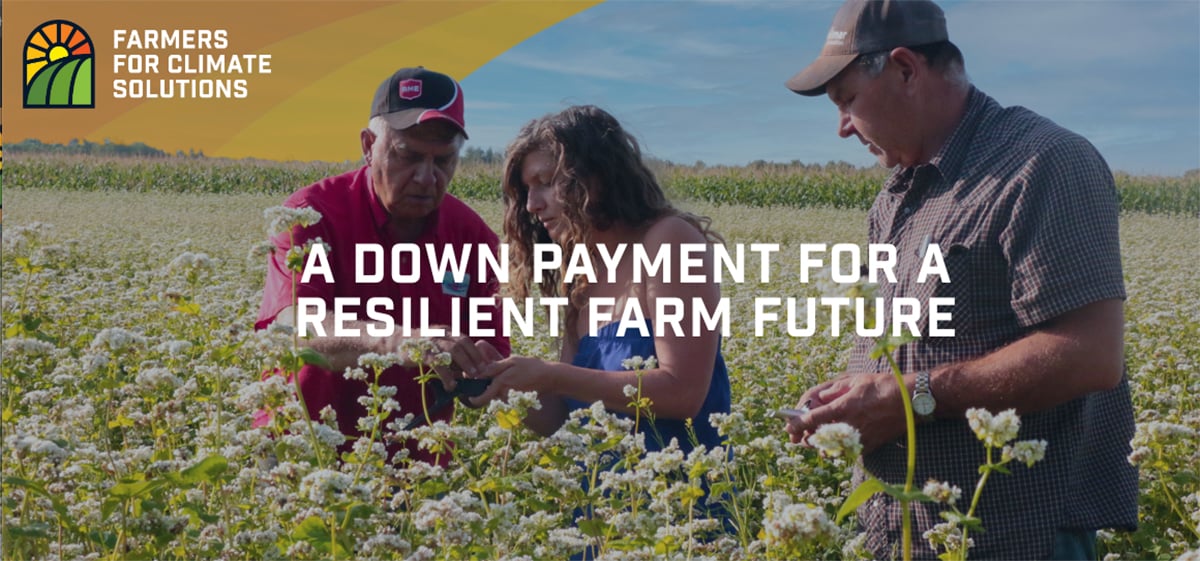
The 37-page document asked the federal government to spend hundreds of millions of dollars to encourage farmers to improve their nitrogen management, plant cover crops and use rotational grazing for livestock in order to achieve the larger goal of cutting emissions from agriculture.
Not long after, in its 2021 budget, the federal government announced $200 million in support for the On-Farm Climate Action Fund (OFCAF).
It appears the feds basically cut and paste the recommendations in the Farmers for Climate Solutions report to devise a program that could reduce emissions from Canadian farms.
“The objective of the fund is to support farmers in adopting beneficial management practices … specifically in the areas of nitrogen management, cover cropping (and) rotational grazing practices,” says the Agriculture Canada website.
There’s a direct link between the group’s 2021 report and OFCAF, said Andrew Rushmere, deputy director of operations and partnerships with Farmers for Climate Solutions.
“Many of those recommendations were taken up in that budget and resulted in the On-Farm Climate Action Fund program,” Rushmere said from his home in Duncan, B.C.
“Our advocacy work led directly to the creation of (OFCAF).”
Since the initial announcement of $200 million, the government has upped its investment and has committed $704.1 million to OFCAF.
That sort of agricultural policy success is unusual, considering Farmers for Climate Solutions wasn’t an official farm group in 2021. It was a project, housed within an Ottawa non-profit called SeedChange.
A group of “civil society organizations” came together in 2019 to build the coalition that would become Farmers for Climate Solutions, says the SeedChange website.
The objective was “working together to create rapid policy change in Canada.”
They got their wish.
Only two years later, the feds committed $200 million to OFCAF, and Farmers for Climate Solutions would soon become a major player in Canadian ag policy.
“We grew very quickly because of that initial success,” Rushmere said.
Who are they?
Farmers for Climate Solutions separated from SeedChange and became its own entity in October 2023.
The group advocates for polices and on-farm practices that “lower emissions and increase resilience” in agriculture, its website says.
There are 28 members in the coalition, including the National Farmers Union, eight organic farming groups, the Small Scale Meat Producers and others.
They do have members that represent large-scale agriculture, such as the Canadian Forage and Grassland Association, Rushmere said.
“I wouldn’t pigeon-hole us as small scale, direct to market (or) organic.”
Unlike crop commodity groups and general farm organizations in Canada, Farmers for Climate Solutions doesn’t get its funding from farmers by collecting a levy per tonne of production or charging a membership fee.
More than a dozen foundations and corporations have donated money to Farmers for Climate Solutions, which is a registered charity.
One of its funders is the Ivey Foundation, located in Toronto, which contributed $1.1 million in 2023.
“It (our funding) is all Canadian philanthropic organizations,” Rushmere said.
“Some very small corporate grants…. We’ve never received government money.”
$4 million budget
In 2024, Farmers for Climate Solutions had grant revenues of about $3.2 million and net cash of $824,000, says its financial statement for the year ending Aug. 1, 2024.
“Now we have this larger operating budget, which is close to $4 million,” Rushmere said.
“We’ve already added more people and we’re adding more, yet.”
As of the middle of October, Farmers for Climate Solutions had 13 employees and will soon have 15.
Those workers are unionized.
In early October, the employees ratified their first collective agreement. They won the right to a four-day work week and a defined pension.
In the world of Canadian farm groups, an annual budget of $4 million and 15 full-time staff is significant.
In comparison:
- The Prairie Oat Growers Association, which represents thousands of farmers, has a budget of about $1.4 million and 1.5 employees.
- The Canadian Federation of Agriculture has eight employees.
- The Canadian Pork Council, which represents an industry that directly and indirectly employs about 100,000 people, has a staff of 13
What do they do?
Farmers for Climate Solutions’ mission is to support producers by building resilience to climate change, improving profits and cutting on-farm emissions.
It accomplishes that in three ways, Rushmere said.
No. 1 is advocating for federal policies and government investments that align with its goals. The group’s leaders routinely communicate with powerful people in Ottawa.
Canada’s lobby registry keeps records of communication between lobbyists and federal politicians or bureaucrats.
In the last few months, representatives of Farmers for Climate Solutions met with or communicated with:
- agriculture minister Heath MacDonald
- Jeremy Keats, senior policy adviser to the minister
- Lawrence Hanson, deputy minister of agriculture
- Tom Rosser, assistant deputy minister of agriculture
- Joshua Swift, policy co-ordinator in the Prime Minister’s Office
Its No. 2 priority is a knowledge transfer program called Farm Resilience Mentorship. It works with partner organizations across Canada that share information with producers about cover crops, rotational grazing and nutrient management.
So far, the program has connected with more than 16,000 farmers, Rushmere said.
The third priority is strategic initiatives. Those are one-time projects with a specific goal.
A current project is looking at financial incentives and programs, which may encourage farmers to try new practices.
Rushmere emphasized that Farmers for Climate Solutions is led by farmers.
That’s reflected in the board of directors, whose members are producers from Ontario, Saskatchewan, Quebec, British Columbia and elsewhere.
“We’re not doing this in a top-down way,” Rushmere said.
“We’re listening to our members and our partners and their priorities.”
The organization has set clear goals of having 25 per cent more farms using tools and practices that lower emissions by 2030 (relative to 2021), as well as a 25 per cent net emissions reduction from Canadian farms by 2030.
Rushmere said the coalition is willing to work with producers who have different opinions about climate change and the related risks to agriculture.
“We don’t have to agree on the problem to agree on solutions,” he said.
“We can agree on a lot of areas of common ground. We can all agree that we want to work on soil health. We can all agree that we want farm businesses remaining viable.”


